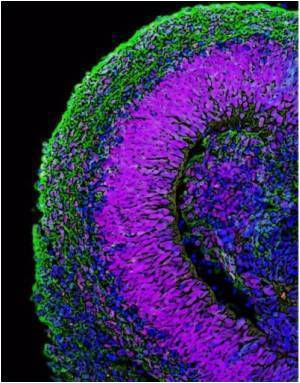Locating sensitive nerves during a surgery may now be possible as scientists have developed injectable fluorescent peptides that cause hard-to-see peripheral nerves to glow.

"For example, if the nerves are invaded by a tumor. Or, if surgery is required in the setting of trauma or infection, the affected nerves might not look as they normally would, or their location may be distorted," he said.
Scientists at the University of California, San Diego School of Medicine developed and injected a systemic, fluorescent-labeled peptide (a protein fragment consisting of amino acids) into mice.
The peptide preferentially binds to peripheral nerve tissue, creating a distinct contrast (up to tenfold) from adjacent non-nerve tissues. The effect occurs within two hours and lasts for six to eight hours, with no observable effect upon the activity of the fluorescent nerves or behavior of the animals.
"Of course, we have yet to test the peptide in patients, but we have shown that the fluorescent probe also labels nerves in human tissue samples," said Nguyen.
Interestingly, fluorescence labeling occurs even in nerves that have been damaged or severed, provided they retain a blood supply. The discovery has suggested fluorescence labeling might be a useful tool in future surgeries to repair injured nerves.
Advertisement
The findings are published in the journal Nature Biotechnology.
Advertisement









